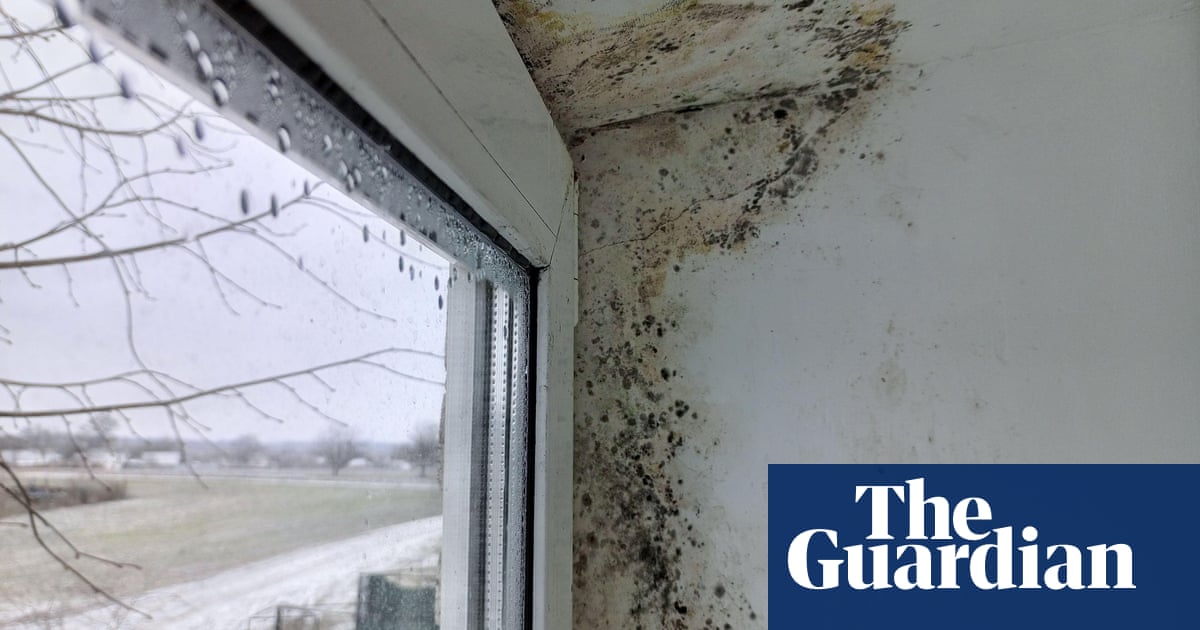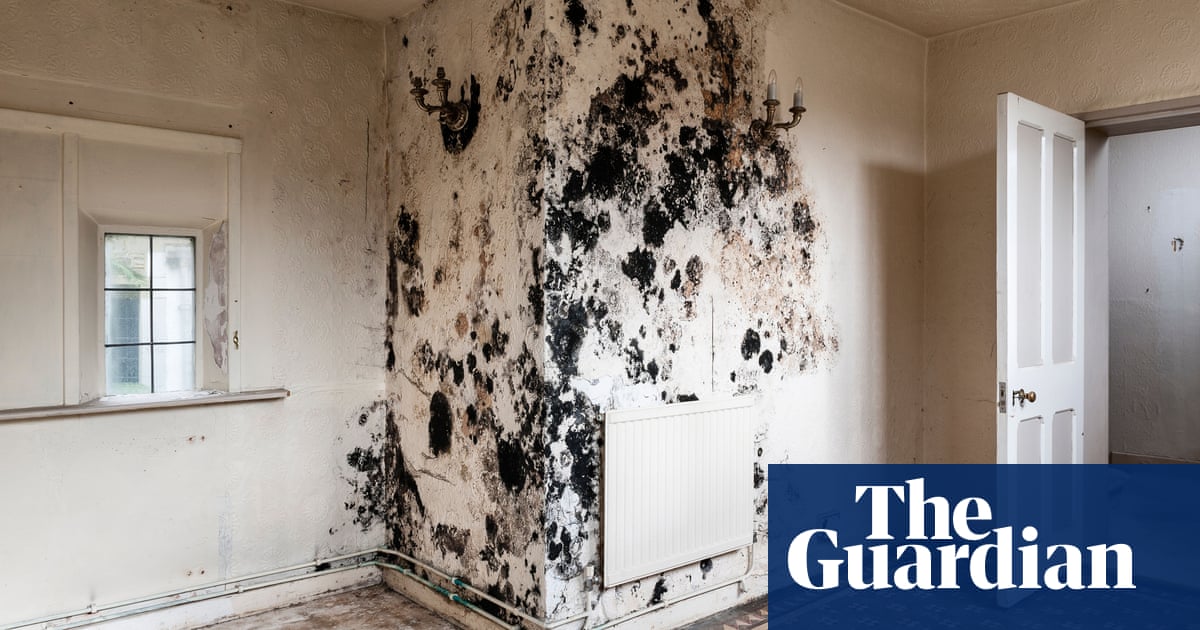
Millions of people living in damp and run-down properties are suffering worsening mental and physical health due to delays passing crucial reforms into law, research suggests.
A survey by the homelessness charity Shelter found that about 40% of people in rented homes had experienced poor health as a result of their living conditions in the last year – amounting to almost 3 million people in England.
Nearly two-thirds of renters in large swaths of the country – about 4.4 million people – said their mental health had worsened due to housing worries since 2022.
Campaigners are growing increasingly concerned that legal protections for renters, which are passing through parliament, are being delayed due to opposition from Conservative MPs, of whom one in five are landlords.
Osama Bhutta, the director of campaigns at Shelter, said: “It is disgraceful that England’s 11 million private tenants are at the mercy of a broken rental system while politicians sit on their hands and dither over whether to make renting fairer and safer.”
One of the main protections in the renters (reform) bill is a ban on so-called no-fault evictions, known as section 21 orders, whereby landlords can remove tenants without having to give a reason.
Campaigners say section 21 orders are one of the biggest causes of homelessness and are used by unscrupulous landlords to punish tenants who request basic repairs.
The Conservatives first promised to ban section 21 evictions in April 2019 but did not introduce legislation until May 2023.
The bill had been expected to have a second reading in the Commons in the spring but this is not expected to happen until November, amid reports of growing opposition to the reforms among Tory MPs.
While the changes appear deadlocked in Westminster, official figures show that court proceedings for no-fault evictions have reached their highest level in six years. Research suggests someone is handed a no-fault eviction every three minutes, the equivalent of 543 a day and almost 595,000 since 2020.
A survey of more than 4,000 people in private rented accommodation in England suggests that delays to the changes were causing increasing ill-health among those who fear eviction.
More than 700,000 renters in London, almost 40% of the total, are suffering mental or physical problems due to the worry of being evicted, according to the YouGov research on behalf of Shelter.
People with disabilities are affected disproportionately by deteriorating health, with half of all disabled renters saying they had become more ill due to worrying about their living conditions, compared with 29% in the rest of the renting population.
Dave Lockyer, 52, has twice been evicted from private rented flats after section 21 orders, the first time leaving him homeless and sofa-surfing for three months.
A former civilian police worker, Lockyer’s disabilities mean he has limited ability to work and relies on benefits – which, he said, made finding somewhere to live almost impossible due to “discrimination from landlords and estate agents”.
Lockyer, from Woking, Surrey, spent six months looking for a new home after being evicted without explanation in January. The stress was “unbelievable”, he said. “If it wasn’t for the fact I’m so bloody stubborn I would have been at the bottom of a river years ago. I’m mentally strong but those six months broke me.”
He said being at the mercy of private landlords on one-year tenancies was like “your life being ripped up every 12 to 18 months”.
He added: “It’s this perpetual cycle of wanting to put some roots down but it seems the system is entirely set up to prevent that. It just puts your life indefinitely on hold.”
The Shelter survey, carried out between July and August, also exposed the precarious financial situation facing many of England’s 11 million renters.
Almost half said they would not be able to afford where they live if their landlord increased the rent by 10%. This applied to almost two-thirds of the 1.8 million renters in London and about 60% in the south-west, south-east and north-west of England.
Bhutta, of Shelter, said the renters (reform) bill would reduce homelessness – which reached a 25-year high earlier this year – and help hold landlords to account.
He added: “The government cannot allow this bill to be held hostage by a group of landlord backbenchers while so many renters continue to suffer. It’s pivotal it gets the renters (reform) bill over the line and keeps its promise to protect the millions of people who call private renting home.”
A government spokesperson said: “The government is absolutely committed to delivering a fairer private rented sector for tenants and landlords through the renters (reform) bill. The bill which delivers our manifesto commitment is progressing through parliament and second reading will follow shortly.”












